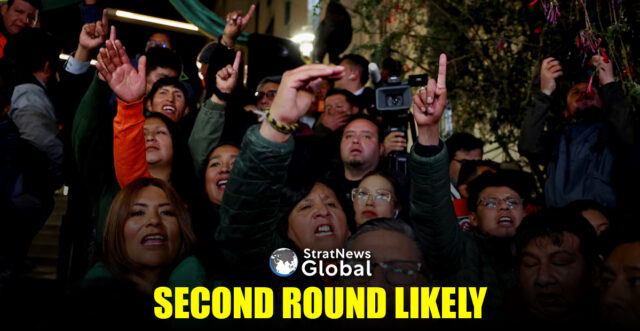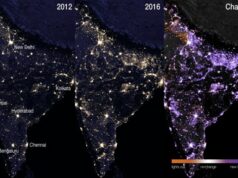Early official results from Bolivia indicated a surprising lead for centrist Rodrigo Paz of the Christian Democratic Party, who secured 32.04% of the vote in Sunday’s presidential election, as per the country’s electoral tribunal.
Conservative former president Jorge “Tuto” Quiroga of the Alianza Libre coalition was in second place, with a likely second round needed.
Change Of Guard Likely
Bolivia’s ruling Movement for Socialism or MAS party was on track to suffer its worst electoral defeat in a generation on Sunday, with its candidate and other leftist challengers trailing the center-right opposition.
If no presidential candidate wins more than 40% support with a 10 percentage point lead, the election will head to a runoff on October 19.
Samuel Doria Medina, a business magnate who represented the center-right Alianza Unidad coalition and was polling third, said he would throw his support behind Paz in a runoff.
Sunday’s general election has been overshadowed by inflation at a four-decade high and the absence of former leftist president Evo Morales, who was barred from running and criticized the vote.
Eventful Day
Voter turnout on Sunday was steady, authorities said. Despite earlier concerns that the electoral process in Bolivia could be obstructed by supporters of Morales, who had called on the public to boycott the race, international observers said the vote took place without major disruptions.
Earlier on Sunday, several minor incidents took place at polling stations in the central region of Cochabamba, Morales’ political stronghold.
With a crowded field and no dominant MAS party candidate, the election marks a “crossroads moment” for Bolivia, said Southern Andes analyst Glaeldys Gonzalez Calanche of the International Crisis Group.
Economy
Bolivia’s fragile economy has been top-of-mind for voters. Price rises have surged past other Latin American countries this year, and fuel and dollars have run scarce.
Annual inflation doubled to 23% in June, up from 12% in January, with some Bolivians turning to cryptocurrencies as a hedge.
Many Bolivians, especially those who work in the informal economy, were now struggling to make ends meet, said economist Roger Lopez.
“Prices of the basic food basket are going up fast,” said Lopez. “Suddenly the math doesn’t add up anymore.”
‘We Need A Change’
Early election results indicated they chose to punish MAS on Sunday, creating a window of opportunity for centrists and the right.
“Every year the situation has got worse under this government,” said Silvia Morales, 30, from La Paz, who works in retail. A former MAS voter, she said this time she would cast her vote for the center-right.
Carlos Blanco Casas, 60, a teacher in La Paz, said he intended to vote for change. “This election feels hopeful. We need a change of direction,” he said.
Quiroga has promised “radical change” to reverse what he calls “20 lost years” under MAS rule. He supports deep public spending cuts and a shift away from alliances with Venezuela, Cuba and Nicaragua. Quiroga was president for a year in 2001-2002 after the then-leader resigned.
Paz meanwhile plans to decentralize government by introducing a “50-50 economic model” in which the central government would manage only half of public funds. The remainder would be designated to regional governments.
Silvia Morales, 30, a former MAS voter from La Paz, said she had cast her ballot for Paz on Sunday.
“He’s a new face with experience,” she said, “I think we should make space for new opportunities.”
Hope For Economic Recovery
On the left, the vote is split between the official MAS party candidate Eduardo del Castillo, who is backed by outgoing President Luis Arce, and Senate President Andronico Rodriguez, who has distanced himself from the party and is running on his own ticket.
Morales, 69, had called for a boycott of the election, but analysts said his influence is waning.
“There is widespread support for these elections,” said Calanche. “Most Bolivians see them as key to leading the country towards economic recovery.”
Full official results are due within seven days. Voters also elected all 26 senators and 130 deputies, and officials assume office on November 8.
(With inputs from Reuters)





